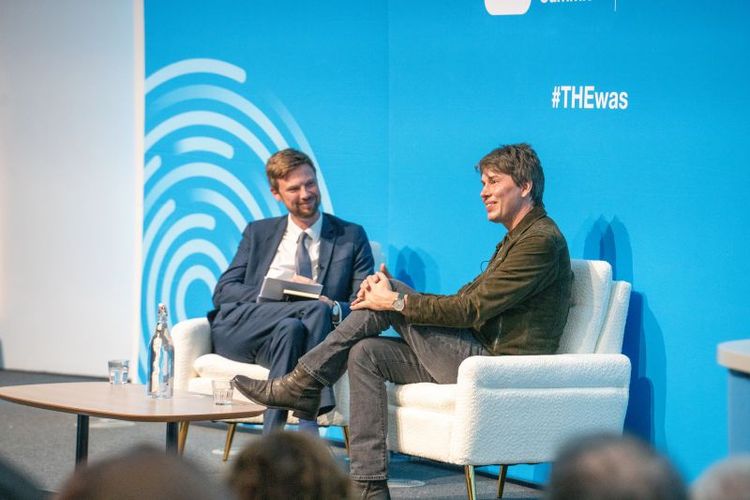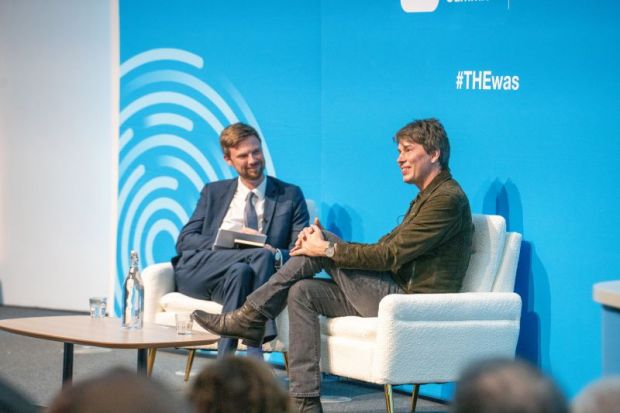Brian Cox: humanities research is ‘absolutely vital’

"BBC Presenter: No One Knows What To Dismiss"
Renowned British scientist Brian Cox has passionately advocated for the necessity of funding basic research in various fields. He emphasized that we cannot predict where the next major discovery will come from.

Speaking at the Times Higher Education’s World Academic Summit, Professor Cox expressed his ongoing astonishment to the crowd at the University of Manchester about how research in fields that may seem to have little practical application can bring significant advantages to society.
Nonetheless, it proved difficult to clarify to the public and lawmakers the intricacies of the research process and the reasons behind the need for financial support.
“What we're doing in our field, although I wouldn't put it this way to the Treasury, is that we have many individuals who are essentially getting paid to explore the fringes of what we already know… that's essentially our role,” explained the scientist from Oldham, who serves as a professor of particle physics and a Royal Society professor for public engagement in science at Manchester. He is particularly recognized for his popular science programs on the BBC.
"You meander through various paths, and sometimes those paths will guide you to unexpected discoveries that can change societies forever. There are countless instances of this, like the work of Faraday or the discovery of penicillin," he stated. He also emphasized that the key aspect is to clarify how we, as scholars, gain knowledge or come to understand things.
"We can talk about the Large Hadron Collider, which some may find complex—like its quest for the Higgs Boson—or we could focus on how AI is being applied in medical research, which is arguably more practical," he stated.
Just a quick note: I have a PhD student here at the University of Manchester, whom I co-supervise, and he receives funding from a tech company. Interestingly, his research focuses on black holes. You might wonder why anyone would be interested in something as abstract as a collapsed star, aside from the sheer fascination it brings. However, over the past decade, the inquiries sparked by Stephen Hawking's work on black holes in the 1970s have turned out to be closely linked to issues of information and quantum information.
"The methods currently being created to address inquiries about black holes are actually the same methods necessary for programming quantum computers. It's surprising how knowledge can flow within the same field – who would have thought?" stated Professor Cox, whose new BBC series, Solar System, premieres this week.
He mentioned that discussions with politicians were frequently challenging due to valid worries about how public funds are spent, but they were still essential to have.
"If you had suggested, 'Invest money in research on collapsed stars, and it will lead to important advancements,' people would have found it ridiculous. However, we must acknowledge our own limitations – no one has the insight to pinpoint how to spend money in ways that can truly transform society. It's not that we aren't trying hard enough; the reality is that it's an immensely complex challenge," he explained.
Although it was simpler to argue for funding scientific research, Professor Cox emphasized that it is critically important to also support research in other fields, such as the humanities and social sciences, in order to enhance our understanding of the universe.
In light of his recent partnership with a 100-member symphony orchestra, Professor Cox emphasized how vital the arts and creative disciplines are in aiding our comprehension of life.
Cosmology brings up deep philosophical inquiries regarding our existence in the cosmos. What does it mean to have a limited and delicate life in an endless and timeless universe? Science doesn’t provide an answer to this—it doesn’t explain the significance of discovering 400 billion stars in the Milky Way. If there is an answer to this, it's as Plato suggested: we can illuminate the shadows. Science offers essential insights, but those insights alone are not enough.
He concluded that if a wide variety of research fields do not receive funding, achieving significant discoveries may become impossible.
"Do you have the intelligence to wisely allocate funding for research? Are you savvy enough to determine which areas can be set aside without harming the overall study?" he asked.
Or sign up for unlimited access to:
If you're already registered or currently subscribed, please log in.
Entrepreneurs are now the new leaders of innovation, but it is essential to recognize that researchers involved in fundamental studies play a crucial role in shaping our future. According to Brian Schmidt, these researchers require adequate financial support to continue their important work.
The writer of the 'Sleeping Beauty' study on coronavirus believes her experience strongly supports the need for funding fundamental scientific research.
As universities fund more research with their own resources, they tend to be less selective about the topics they choose to investigate.
"Related Posts You May Enjoy"
The former education secretary has informed the World Academic Summit that the UK has shifted its focus away from ensuring fair access to education.
The vice-chancellor of Manchester emphasizes that universities should keep collaborating internationally despite growing political doubts.
Baroness Smith mentions the budget from October while stating that the government is exploring various possibilities.
Instead of criticizing those who manage the finances, the regulator suggests finding ways to assist them in addressing their challenges.













































